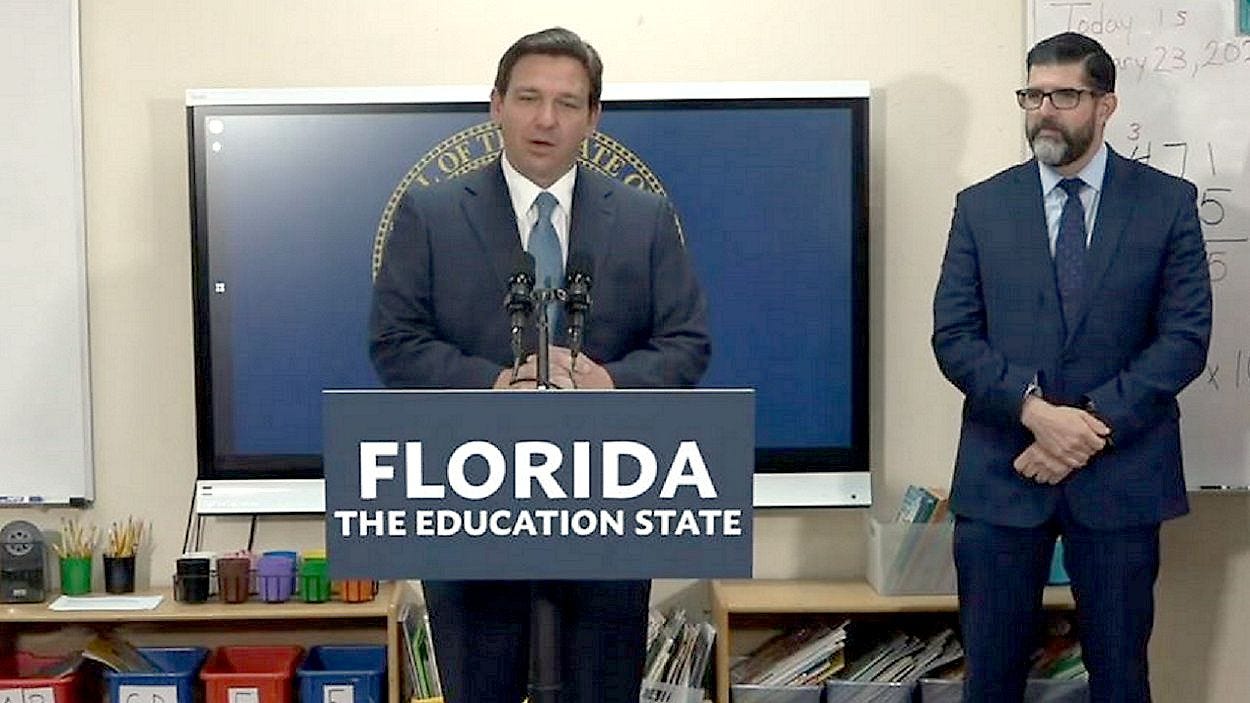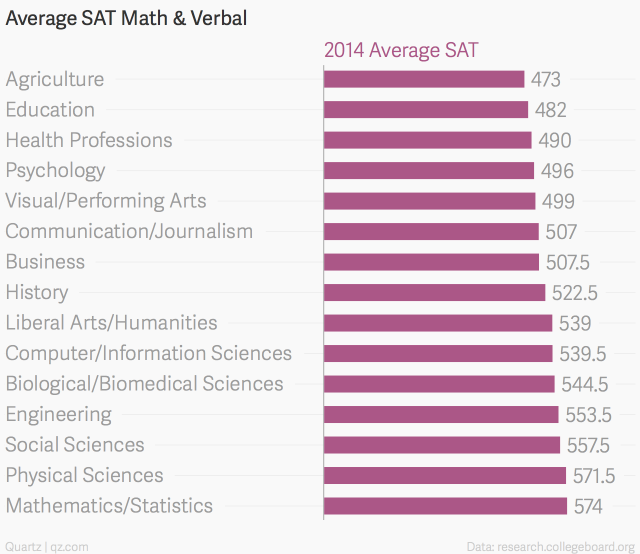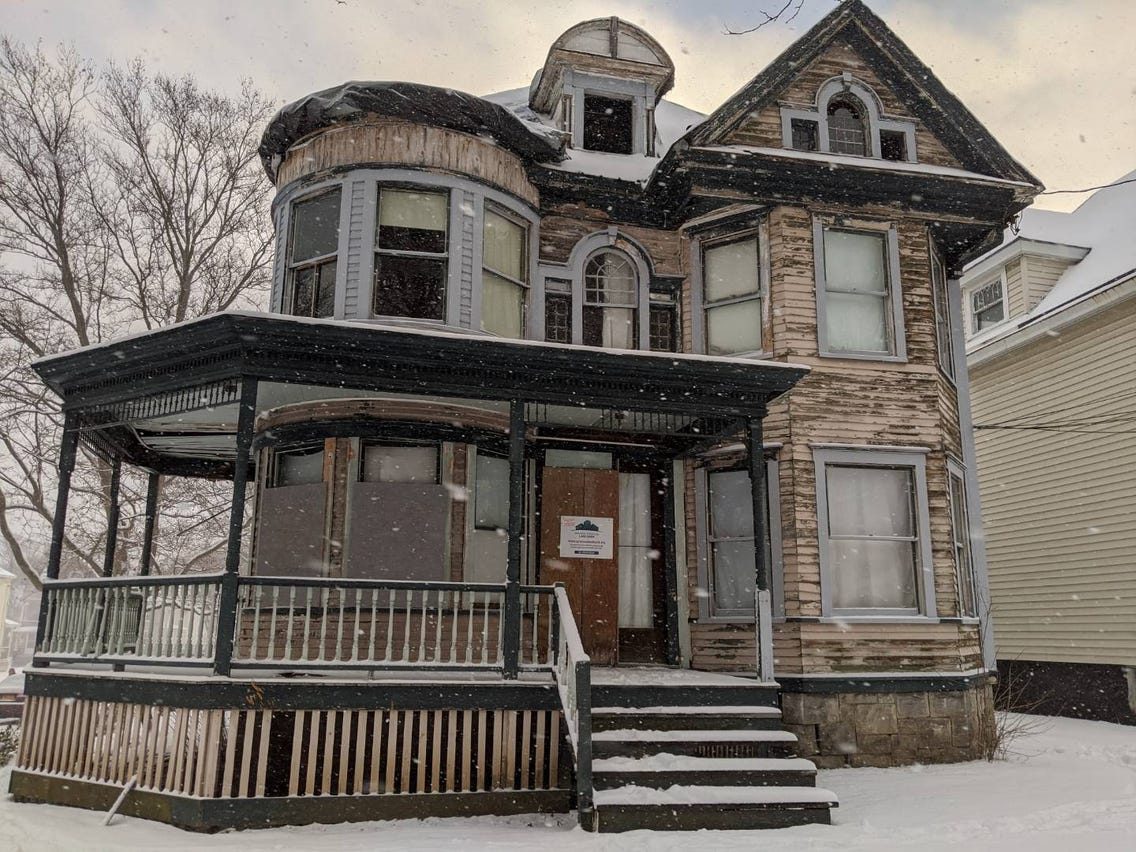On Teaching: Part II
Where to teach, or, the Invisible College
If you are still with me at this point, you have decided either that teaching is for you, are considering it, or are interested in the subject generally. Regarding the latter it seems I am sailing into largely uncharted waters, as the subject of rightists teaching in secondary schools is not one that has been very well-explored. In the broader discourse around education ‘right-wing’ is a nebulous concept. It tends to mean ‘normiecon’ in the media as a whole, ‘anyone who doesn’t advocate turning students into galli’ in leftist sources, and ‘something apart from consideration’ among rightists themselves. This can lead to confusing situations; one can find Ron DeSantis being denounced online as a right wing extremist by Florida teachers- would that we were so fortunate. It is important to understand that to be rightist in the sense understood in rightist spaces is to be radically beyond the bounds of acceptability with both the general public and theorists of education, including those who consider themselves to be outside the mainstream. The lingering inertia of the ‘normal’ exerts an enormous pull even among those who should know better. In spending time among homeschoolers and those in the Classical education movement one commonly encounters the notion that if only things were the way they were five, ten, twenty, etc. years ago, there would be no need for their independent approach, and a kind of bunker mentality where, if we simply wait out this storm, the sunshine will come again soon.
The face of pure, unadulterated hatred of children.
This will not happen and the system is your enemy. By system I don’t specifically mean the public school system, although that is a major part of the problem. I mean managerialism as a method of rule and neoliberalism as the ideology behind it. I could call it the Cathedral but you’ve read Moldbug and you’re already thinking that anyway. It is ubiquitous, and no means of education can exist that does not take account of it and its influence. There is no ignoring it; it must be engaged and evaded as one is able. This essay is about how that can work, how rightist spaces can be created and sustained within the system, and how the strengths of the system can be ju-jitsued against it. This involves devising solutions for a two-phase strategic problem: how do we function in existing spaces, and how do we create new, purpose-built spaces as the broader social situation evolves?
Education can be either public or private, accepting that there is a degree of overlap. Public education in the form of traditional public schooling organized by districts under the direct authority of the government is still the norm for the vast majority of students. This category includes magnet schools, specialized themed schools, and those virtual schools under the authority of the state. Along with this are various charter schools, which are publicly funded, but under the direct management of some private entity, an individual, a board, a charter management company, etc. Charter schools theoretically represent a blend of public and private features. The most widespread iterations of private education are the classic private schools (which generally prefer to be known as ‘independent schools’), which are free of direct state control but still very much beholden to accrediting agencies. Along with this are micro-schools and hybrid homeschool co-ops, which are small-scale, often ad-hoc institutions characterized by large amounts of customization and volunteerism. Finally there is homeschooling proper, which centers on the family and is private in the most fundamental sense; the home becomes the school and the barrier between family and place of learning dissolves.
How should a man or woman of rightist inclinations approach these varying systems? Traditional public schools should be excluded outright. An exception may be made for someone who already works in the system and already has secured himself a secure and pleasant teaching assignment who comes to rightist thought later in life; this person has already sunk a great deal of time and effort into his career and throwing it away would be a waste. However, he should know he is on borrowed time. He is probably already demographically disfavored and any hint of awareness, much less favorable reception, of rightist philosophy will see him denounced, fired, and sent off with the mark of Cain. At first he might think he is safe- he knows his colleagues have never heard of Dugin or Evola, and though someone on CNN might have told them there’s a guy out there named Bronze Rage Pervert they should look out for, they won’t catch any of his joking references. But the very fact that he is tossing off unfamiliar phrases will set off visceral suspicions, which will lead to Googling, and it won’t be long before one of his enemies (the tiny frog pond that is a school can host vicious- and entirely concealed- personal animosities) starts sending emails to the principal, demanding action against the istophobe.
You use concept-based teaching. I teach based concepts. We are not the same.
The truth is that most teachers [edit: NOT ALL], especially in the public system, are dull creatures with little imagination or intellectual curiosity. They will take the opinions they formed as undergraduates to the grave, save only as they need to adopt more acceptable views to maintain the esteem of the peers and employers, which they value enormously. Few of them are well-read, even those who are employed to teach such, and if they do read, it tends to be easily comprehensible fiction or the sort of social science one finds for sale at an airport or in a TED Talk, the latter of which they are very fond. There are exceptions (in my private school I have formidable colleagues), but in general public school teachers especially are selected for traits of collegiality, docile obedience, ability to manage children, ability to manage parents, and tractability regarding ever-evolving buzzwords, jargon, and bullet-point pedagogical concepts. Scholarship in any sense is not valued or rewarded.
They’re crushing those farmers, though.
If this sounds harsh, the people I’m describing probably sound like the people one would find in other organization under managerial neoliberalism; the sorts of people one meets in education are the same as one would expect to encounter in sales or IT. They are produced by the same processes and have the same goal, to aid the system in satisfying the consumer wants of the managed population. Public schools produce grown children who buy things, marketing tells them what to want, logistics moves that stuff from place to place, and finance makes sure everyone is borrowing enough to stay “happy.” If you look down on teachers because you have a ‘real’ job, understand that what you do would probably be pointless and impossible without what they do, and you are just further down the line.
But I digress. Public schools are hostile territory for other reasons. There is close to zero professional autonomy; one teaches according to state standards, according to state rules, on the state timeline, so that students can pass state mandated tests. It is Guenon’s reign of quantity in institutional form, a nationwide Amazon fulfillment center, but with fewer books and even fewer bathroom breaks. Such work is profoundly unattractive for anyone with a love of learning or a sense of mature independence, but it gets worse. As schools are the filtering system for the managerial state, parents understand that their children must get the appropriate numbers in the appropriate columns to be eligible for a middle-class life as they understand it, so the ones who care make certain that such occurs, whether the student is committed to the same goal or not. Badgering mothers are the best case scenario; that shows you are in a school where the community at least has a vestigial sense of the importance of education. At less favored institutions, the kids run the show, and the chaos, violence, and nihilism of such a school is so shocking to one who has not experienced it as to beggar belief. I attended such a school and can attest to the horrors personally.
As depicted in this documentary.
Charter schools offer slightly better prospects, but as a whole should similarly be avoided. Charters are supposed to improve public education by bringing to it the mindset of the business world; the result is that public schools are improved in exactly the same way the universities, the military, and prisons have been. Costs are cut and efficiencies are introduced, but this is largely done to line the pockets of the now-politically connected charter management companies. The main practical difference is that charters can throw up obstacles that drive away those less motivated or genuinely hostile to education, such that the overall learning and professional environment is more orderly and amenable to learning, or at least, more pleasant. However, charter management companies generally come in three varieties, profiteers, ideologues, and scammers. The first seek to wring as much taxpayer money out of the venture as possible; salaries are low and the administration is wholly indifferent to any academic mission beyond platitudes. Ideologues are generally those who believe the problem with public schools is that they are not neoliberal enough, and create an inhuman environment of systemization, scripted lessons, and constant quantitative analysis that is repulsive to anyone, student or teacher, with a differentiated soul, or options. The scammers are simply out to steal. Some start out as one of the other two and get taken over; others are fronts for illegal athletic recruiting or even the CIA. While one may be able to work for a while for a profiteer and take advantage of the fact that they are looking the other way while you drop red pills, charters are not a long term proposition.
This leaves private education. The main benefit of working at a private school is that the school itself decides its own character, and if you find one that is amenable to your worldview, you can enjoy a pleasant career teaching reasonably motivated and well-behaved students, at least some of whom will pick up on the important themes you are trying to convey. One should understand, however, that private education is in some places as riddled with leftism as public, and in the former it has an even more toxic effect, as the teachers in independent schools tend to be intelligent and charismatic enough to understand and teach leftist thought and the students tend to be smart enough and impressionable enough for the ideas to stick. A lot of the problems in the world can be traced to the decadent Bolshevik rot infesting private education, which in a proper world would be a bastion of a more correct social order. Still, if one finds a school that respects academic freedom and is culturally acceptable, a rightist could do well in an independent school.
However, it should be noted that, at best, one would be allowed to be right-wing at a private school. To my knowledge, there are no truly rightist secondary private schools as such, only some places where such thinking is acceptable on a spectrum that runs from Daily Wire enthusiast to I-kind-of-think-that Raw-Egg-Nationalist-guy-I-saw-on-Tucker-is interesting . . . This means that if one is to pursue a career as a dedicated rightist teacher one must forge his own path. This is, in my opinion, where the future lies. And it is here that one encounters homeschooling and the microschool.
The homeschool movement is one of the two most important phenomena in education in the last century, along with the ascent of progressive education in the 1920s and 30s. While the latter hammered the final nail into the coffin of public education as the culturally-informed pursuit of excellence, the former represents a guerilla movement aimed at the entire progressive ascendency. Nothing signifies dissent from the neoliberal consensus like withholding one’s children from Mammon, and homeschooling signifies the fullest possible assumption of personal and familial autonomy. Nothing terrifies the managerial elites like homeschooling; if they ruled over a disarmed population it would already have been banned, as it has been among the beaten peoples of Western Europe. Much of the discourse around capitalism’s demand that women work outside the home ignores the fact that the two-income trap is designed as much to keep the public schools going as the reverse.
It must always be remembered that neoliberalism and managerial rule are impossible without mass public schooling; they arose together and will fall together. The great sorting machine and generator of consumers and consumer want that the public system represents is the engine of the current globalist order. It is there that everyone is measured, distributed, tracked, and marked for future purpose. Even the elite private schools are bound up with the public system, as their graduates are the ones groomed to rule the final product of their publicly educated peers. Homeschooling is the outlier in this, a refusal to bow to the systems norms, to want what it demands you want and live the life it demands you endure.
The natural home for the rightist is in a homeschool environment, and in an ideal world, we would all join with our neighbors, teaching each other’s children from our abilities according to their individual capacities. Unfortunately, we do not live in such a world, and must make do with the best options available to us. Thus, I propose that the proper home for the rightist teacher under existing circumstances is the microschool.
The microschool is a small-scale collective endeavor brought into being by the teachers themselves, serving a small number of students. Think four teachers and perhaps fifty kids. There are many existing iterations of this, but rather than look around, it may be profitable to look to examples in history. Consider the original meaning of ‘college.’ In Latin, a collegium was an association of equal partners brought together for a shared purpose. In the Middle Ages, scholars would form collegia to share scarce academic resources like books and collaborate on research; teaching was something one did on the side to pay for upkeep. In the Renaissance loose associations of intellectuals would gather to share information in order to keep up with new rediscoveries. One might imagine Marsilio Ficino’s circle -his Florentine Platonic Academy- under Lorenzo di Medici or the School of Night of Raleigh and John Dee. These were not top down, bureaucratic affairs with some aim to increase GDP or diversity, but the organic product of the desire of educated men (and some women) to share knowledge among themselves and pass it on to others.
So too must be our modern Schools of Night, or rather, to follow Frances Yates, our Invisible College. This term refers to what can only be described as a meme originating around the time of the Thirty Years War, in which proclamations began to appear around Europe that a secret group of intellectuals was shortly to reveal themselves and offer astounding knowledge to the world. It was connected to the Rosicrucian movement and all sorts of esoterica, but at its core was the idea that in troubled times, minds were at work in hidden places keeping alive the Tradition’s higher knowledge. So let it be with us.
What I have in mind in an easy to follow diagram.
Let us come together and imagine what a school like this would be like. In the first place, the teachers would be a brotherhood, an intellectual mannerbund. The core group would be known to each other and new members would have to meet the assent of the existing teachers. The physical location of the school would be somewhere convenient to a large pool of potential students while also being free from any surrounding culture not conducive to its purpose. The actual building would be the main site of learning, but the school itself would also be an online hub, ultimately linking a network of likeminded collegia throughout the country, perhaps the world. There would be a means for students to learn online as well as in person, with the understanding that the former would be vastly preferable; it would not do to exclude those not able to be physically present who are otherwise committed to the project. Each school would be small, small enough to avoid laws relating to special education, diversity, expensive physical plant, and the like. Individual state laws would have to be consulted in this regard. The actual building should be tasteful but inexpensive, with a shabby-genteel aesthetic. All things should be geared towards minimizing expenses, and in this we are fortunate, as the materials needed to teach to a high level for most subjects are largely cheap and/or free.
That’s the look.
The sort of student we would look for would be someone bright but underserved by his current method of schooling. He or she would be the sort to hang out in the library rather than go to lunch, the one who reads and writes fiction and poetry on his own, one who is bored and lonely in the public school system. These young people are the real tragedies of modern schooling, full of energy but bereft of purpose, creatures of will but no discipline, too weird to attract sympathy from the system they find themselves in and not interesting enough from a diversity standpoint to be given a way out. We will be that open door. Our tuition will be reasonable and our environment inviting. We will offer not merely education but guidance and fellowship. We will treat them as what they truly are, the future, and offer them to the world as young men and women fit to govern themselves and others.
The specific structure and academic program will be dealt with in detail in the next section, but the overall aims of the school, what will serve as its selling point to parents, apart from the above, will be twofold. We will offer something unique, a classical education informed by traditional virtues, as well as a prospect for success in the current system. Our microschool will fully participate in dual enrollment, for example, with college classes taken while in high school, such that students will be able to move directly into the intermediate levels of higher education upon completion of our program. While DE is common enough, we will differ in that our courses will be taught in-person, authored by the instructors themselves, and informed by the same traditionalist sensibilities as the underclass program. The edge here is formative; our students will not enter college as freshmen, malleable to the whims of globohomo. No, they will be ready to engage, moving as quickly through the credentialing system as possible, and from there, into social roles from which they can shape the future of education. We place our protégés in high places so that they are positioned to place their still higher. We will plow the wasteland and plant our fields and cultivate.
We will hack the system thusly, taking minds sick with ennui and teaching them to fight for their freedom against the system, and for the freedom of others. Ours is the forge of a counter-elite, a new aristocracy. Did not de Maistre say that kings emerge from the hidden places of history? Our college is invisible.
The Comte approves.






![Class of 1999 [1080p - Multi-Sub] / (Mark L. Lester, 1990) - Sci-Fiction - YouTube Class of 1999 [1080p - Multi-Sub] / (Mark L. Lester, 1990) - Sci-Fiction - YouTube](https://substackcdn.com/image/fetch/$s_!usDP!,w_1456,c_limit,f_auto,q_auto:good,fl_progressive:steep/https%3A%2F%2Fsubstack-post-media.s3.amazonaws.com%2Fpublic%2Fimages%2F1e237c9e-287f-44b8-8227-fba9bdeda0e6_640x480.jpeg)



This is all great and I should probably write a Part II.5 to cover more of the logistics.
I think either residential or commercial will work provided zoning laws aren’t an issue. There are plenty of small towns on commuter routes throughout the country that have cheap downtown space in attractive if run down buildings. That can be worked on and owning the property outright is preferable to a mortgage and the risks of owning money. The ballpark of $8,00 or so a year is doable, even with the costs you didn’t mention, like insurance and benefits for employees. That works out to about $800 a month for each kid. Online classes are also a great idea. My next installment will include my proposed school day, but I envision classes only in the morning followed by exercise and leisure in the afternoon. During that time, a teacher detailed for that purpose can handle online ed while the bother attend to the in-person students. The sort of student I envision is smart but teachable,an outsider to the system but able to function within it, and a asset to the school who is also able to function without supports if needed. The qualifications will include questions like “what do you read?” and “why do you read?” This along with an in-house exam and perhaps even a PT test. Mens sana in corpore sano. I will write more shortly.
The public schooling’s gravest sin bar none is that it kills the natural human curiosity.
🗨 Serendipity and an attitude of playful exploration both have such a huge role in discovery.
↑↑ A sensible reaction in the context of recent refutal of presumedly self-evident conjecture involving millennia-old Apollonian gaskets. Which started to come about with laid-back summer research project for (under)graduates ¯\_(ツ)_/¯
🗨 Mathematicians have been left to wonder what widely held belief might be the next to fall.